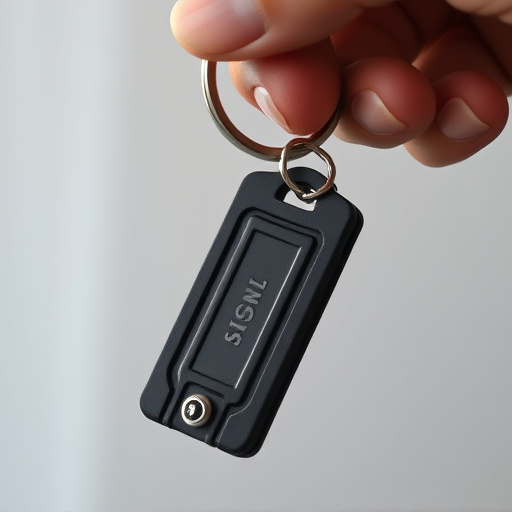Legal Self Defense Keychain Regulations vary widely across U.S. states, dictating use, possession, and types allowed. Citizens must understand their state's rules regarding age limits, permits, permissible uses, and specific keychain designs to avoid legal penalties and ensure responsible self-defense.
“In today’s world, understanding the legal framework surrounding defensive keychains is crucial for individuals seeking personal safety. This article delves into the intricate details of state laws and regulations governing self-defense keychains in the United States. We explore the legal requirements for carrying these devices, their permitted uses, age restrictions, and licensing needs. Additionally, we examine significant court cases that have shaped the guidelines for legal self-defense keychain carry, providing a comprehensive guide for those interested in this topic.”
- Understanding State Laws on Self-Defense Keychains
- Legal Requirements for Carrying Defensive Keychains
- Permitted Uses and Limits of Keychain Defense Devices
- Age Restrictions and Licensing for Self-Defense Tools
- Court Cases Influencing Keychain Legal Carry Guidelines
Understanding State Laws on Self-Defense Keychains
Understanding the legalities surrounding self-defense keychains is crucial for anyone considering carrying one for protection. Each state in the U.S. has its own set of regulations and laws regarding the use and possession of such tools, which can vary greatly from one place to another. These laws cover aspects like age restrictions, permit requirements, and permissible uses, among others.
For instance, some states allow open carry of self-defense keychains without a permit, while others mandate that individuals obtain a concealed weapon permit first. There might also be specific rules about the type of keychain allowed, with restrictions on certain features or designs. It’s essential for citizens to familiarize themselves with their state’s Legal Self Defense Keychain Regulations to ensure they’re compliant and can use their keychain responsibly and within legal boundaries.
Legal Requirements for Carrying Defensive Keychains
The legal requirements for carrying defensive keychains vary significantly from state to state, reflecting a complex interplay between individual freedoms and public safety concerns. In many jurisdictions, there are strict regulations governing the type, size, and capacity of self-defense devices that can be legally carried. These guidelines often specify what constitutes a “defensive keychain” and outline the conditions under which it can be used or transported.
Understanding these legal self-defense keychain regulations is crucial for anyone considering carrying such a device. Non-compliance can result in severe penalties, including fines and potential imprisonment. It’s essential to research and adhere to the specific laws in your state to ensure you’re acting within legal boundaries while prioritizing personal safety.
Permitted Uses and Limits of Keychain Defense Devices
In many jurisdictions, legal self-defense keychain devices are subject to specific regulations and guidelines. These tiny tools, often no larger than a keyring, can be used for protection in situations where an individual feels threatened or is facing imminent danger. However, their use is not unlimited. The permitted uses of such devices typically include deterring potential attackers and providing a means of temporary incapacitation during an assault.
Under the legal self-defense keychain regulations, individuals are generally allowed to carry these devices for personal safety, but there are limits to when and how they can be deployed. Using them in instances of routine disputes or minor annoyances is often not considered lawful self-defense under these guidelines. Furthermore, the force applied should be proportionate to the perceived threat, ensuring that any use of the device does not cause unnecessary harm or injury.
Age Restrictions and Licensing for Self-Defense Tools
In many jurisdictions, the legal carry guidelines for self-defense tools, such as keychains designed for protective purposes, come with strict age restrictions and licensing requirements. These regulations are put in place to ensure that only responsible adults have access to and can legally possess these devices, promoting public safety and reducing the potential for misuse. The minimum age for carrying a legal self-defense keychain can vary, typically ranging from 18 to 21 years old, depending on local laws.
Obtaining a license for such tools is another crucial step in adhering to legal self-defense keychain regulations. Licensing processes often involve background checks, training courses, and applications that demonstrate a valid need for the device, ensuring only those with legitimate reasons and the necessary skill sets are authorized to carry them. These measures help distinguish between responsible citizens exercising their right to self-defense and individuals potentially using such tools for unlawful purposes.
Court Cases Influencing Keychain Legal Carry Guidelines
The evolution of legal carry guidelines for defensive keychains has been significantly shaped by court cases that shed light on public safety and individual rights. Landmark rulings have played a pivotal role in defining what constitutes reasonable self-defense and when the use of such devices is permissible. For instance, prominent case law has addressed issues related to the potential dangers of readily accessible weapons in public spaces, balancing these against the right to bear tools for personal security.
These judicial decisions have not only clarified legal boundaries but also prompted states to update their regulations accordingly. As a result, modern guidelines often consider factors such as the type of keychain device, its ease of use, and the circumstances under which it may be deployed, ensuring that legal self-defense keychain regulations are both comprehensive and effective in protecting citizens while maintaining public order.
Understanding and adhering to defensive keychain legal carry guidelines is crucial for ensuring your self-defense device complies with state regulations. By reviewing these laws, knowing permitted uses, age restrictions, and licensing requirements, you can protect yourself legally while carrying a defensive keychain. Court cases have further defined these guidelines, emphasizing the importance of responsible ownership. As self-defense tools gain popularity, staying informed about Legal Self-Defense Keychain Regulations is key to navigating this complex landscape.
